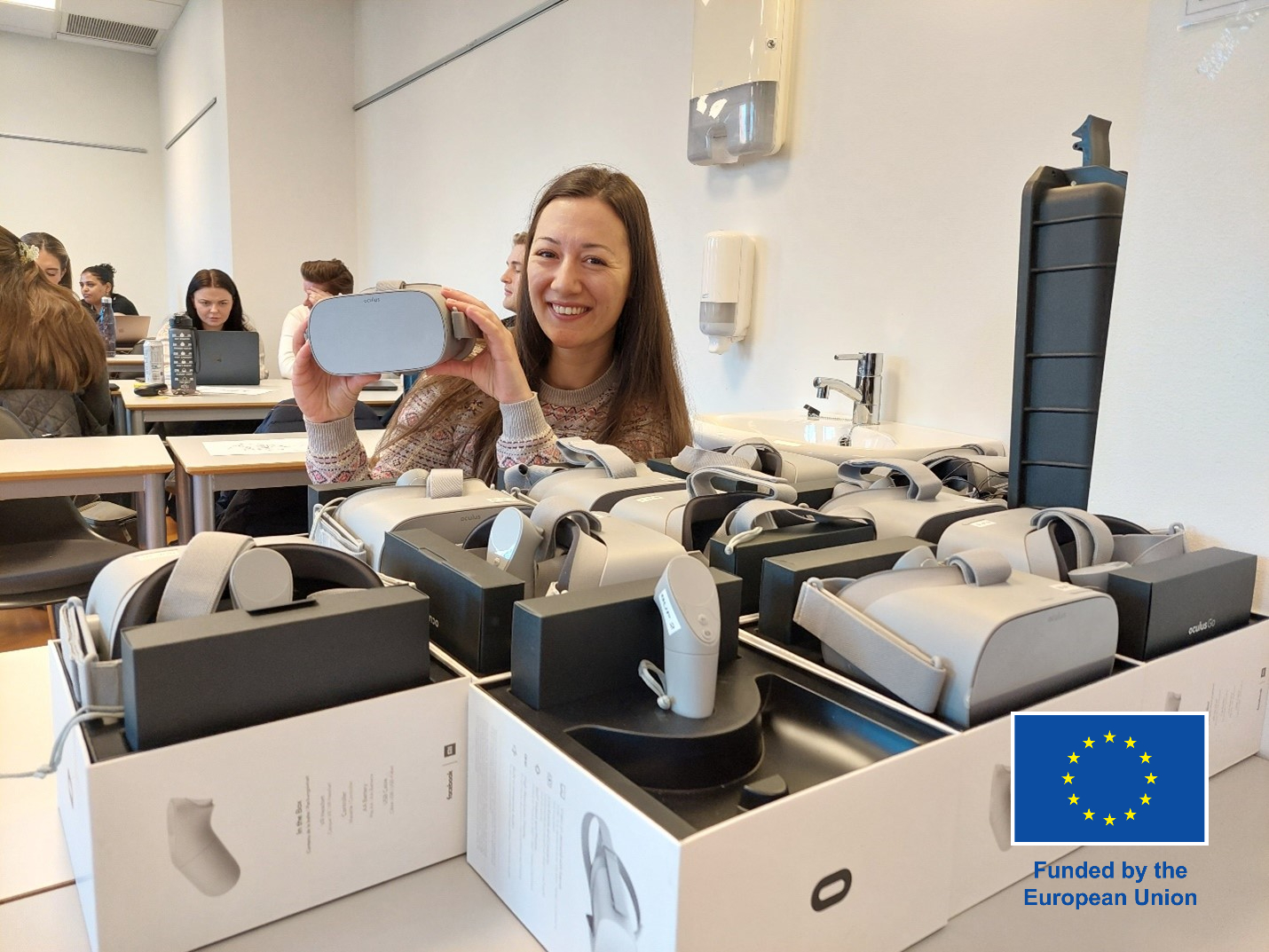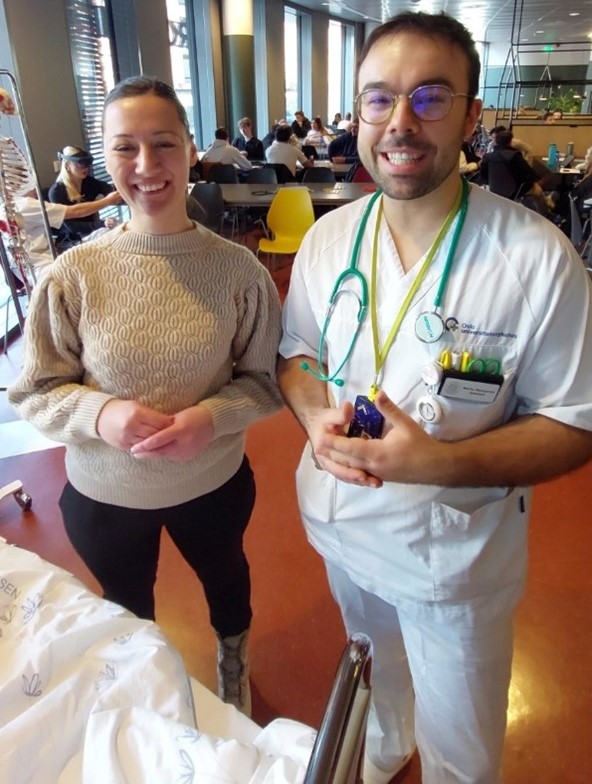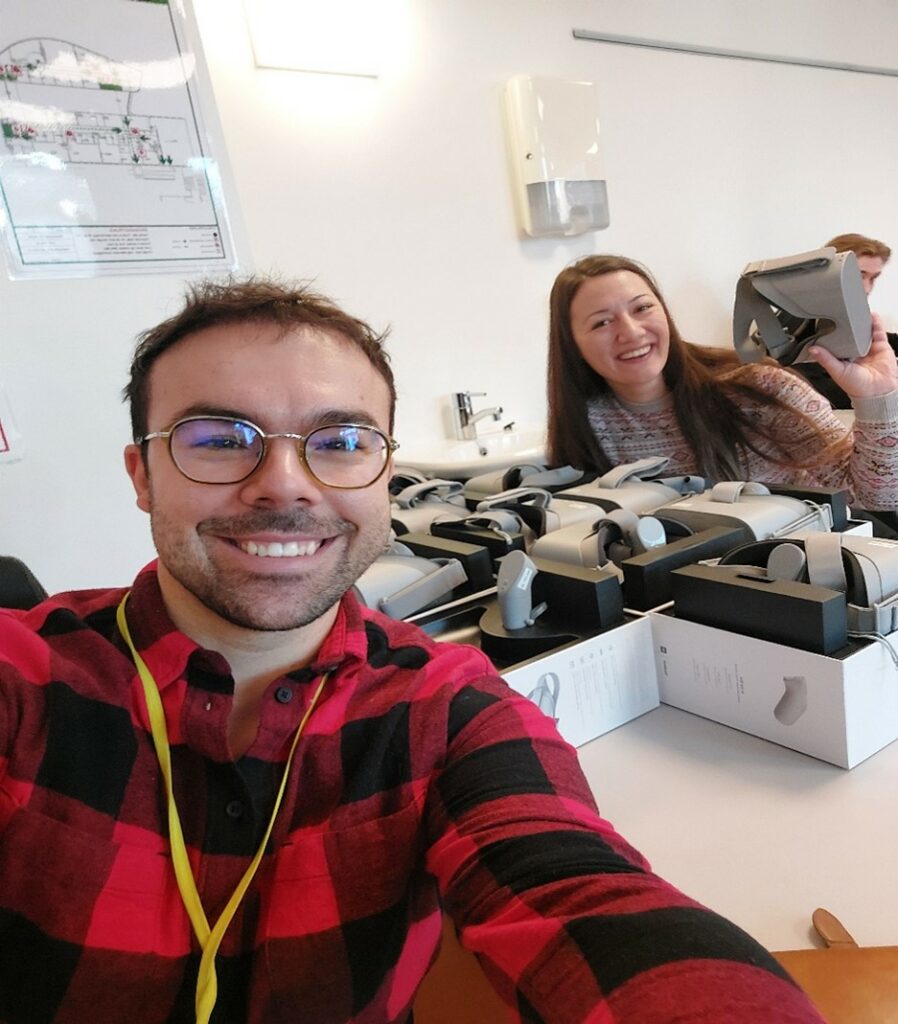Erasmus+ staff mobility- Norwegian standard in medical simulations
- March 29, 2024
- 0

Our colleague, Marija Todorović, lecturer, Head of Student Services in the Novi Sad Unit, and the person responsible for training manikin, equipment and material procurement, as well as teaching staff support during classroom practice at ICEPS, had the opportunity to stay in Oslo, Norway, at the ICEPS partner institution, Oslo Metropolitan University, form the 3rd to the 9th of May 2024, on Erasmus+ staff mobility for training.
A big role in the realization of this mobility was played by Marko Stojiljković, an Assistant Professor at the Faculty of Health Sciences, where Marija stayed, who visited us last year to share experiences in the use of training manikins in the education of future healthcare professionals, with special emphasis on future nurses and the development of Erasmus+ cooperation between these two institutions.


Through Marko’s mentorship and attendance of the “Simulation methods” course, Marija had the chance to gain insight into the state-of-the-art pedagogical methods in nursing education, which involve the use of training manikins and other equipment used for simulating real-life situations which students should solve independently, by using the knowledge and guidelines provided by the mentor.
“Attending the “Simulation methods” course provided me with a considerable experience, where I could see the direct impact and importance of simulation application in education. Namely, the students conducted the simulations in rooms identically equipped to hospital rooms, with beds, training manikins, disposable medical supplies, and other equipment. Through this process, students were not only trained in the correct method of performing medical procedures, but through the use of manikins they learned how to treat it as a live patient as well, with the permission to make a mistake and gain experience from it, while the end of the lesson was used for debriefing, i.e. the process through which students who have gone through the simulation have a thoughtful discussion on the experience.”
ICEPS already has in place similar methods during classroom practice, and the methods and good practices which Marija gained during her visit will serve to enhance our methods, allowing us to keep pace with the most modern countries and methods in education. This will directly impact the knowledge and abilities of our students in the future, and in turn the safety of patients in healthcare facilities where they will undergo traineeship and later be employed. Simulation based learning is an important educational intervention for the improvement of practical skills learning and managing clinical cases in a safe environment.

Norway is famous for high standards in all fields, especially in medicine. Thus, they realized that it is not enough for future healthcare professionals to only learn about the simulation process during their three-year studies, and they implemented the same in their hospitals. That is how the Akershus University Hospital recognized the importance of performing medical simulations and opened the Center for Medical Simulations, where they not only train students from the OsloMet College, but their employees as well, so as to enhance the quality of healthcare provision and reduce adverse effects.
Furthermore, during her stay Marija attended meetings where discussions were held on the quality of practical training within the geriatric center, together with Marko Stojiljković, Ann Kristin Bjørnnes, Head of the Department of Nursing and Health Promotion, Elisabeth Sørbø Haug, International Cooperation Coordinator, and Ruud Knutsen, Institute Director, and where she had the opportunity to spot many similarities between OsloMet and our College, as well as the opportunity to share experiences and good practices


Erasmus+ staff mobility gave Marija new motivation for future work, as well as new ideas which she can implement in the cooperation with lecturers at ICEPS in their work with students, as well as new contacts and possibilities for collaboration enhancement between ICEPS and OsloMet University. Erasmus+ mobility was a chance to get to know a new culture and to develop linguistic and intercultural skills.




